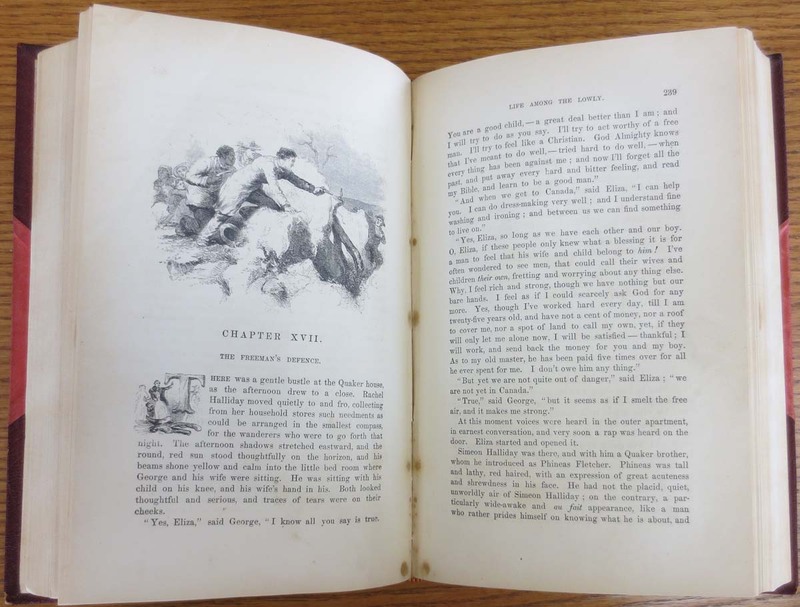Uncle Tom's Cabin and the American Literary Canon
The success of Uncle Tom's Cabin stemmed largely from its status as an icon of the abolitionist movement. After all, the story presented facts which were known to most, and its style was overwrought and moralistic, even by contemporary standards. While Stowe claimed the book was written by God, it was her personal conviction and moral fervor, and her simultaneously domestic and realist style, that ensured the work's popular appeal. The issue of slavery had divided sentiments well before 1852, but it took a sentimental, human novel to catapult it to the national spotlight. Upon meeting Stowe at a White House reception, Abraham Lincoln is said to have exclaimed, "So this is the little lady who started this big war!"
Intended as a polemic, Uncle Tom's Cabin became national folklore, with its characters attaining their own mythic status in the national consciousness. Its popularity as a novel and vast impact on contemporary public sentiment far surpassed its technical merits, and it remains an icon of the historic struggle to abolish slavery in the United States.
In 1949 James Baldwin attacked the book's iconographic status in The Partisan Review: "It was [Stowe's] object to show that the evils of slavery were the inherent evils of a bad system, and not always the fault of those who had become involved in it and were its actual administrators." He called this lack of personal responsibility racist, and current scholarship is somewhat critical of Stowe's moral views. Despite the criticism, Uncle Tom's Cabin remains a well-read classic.

